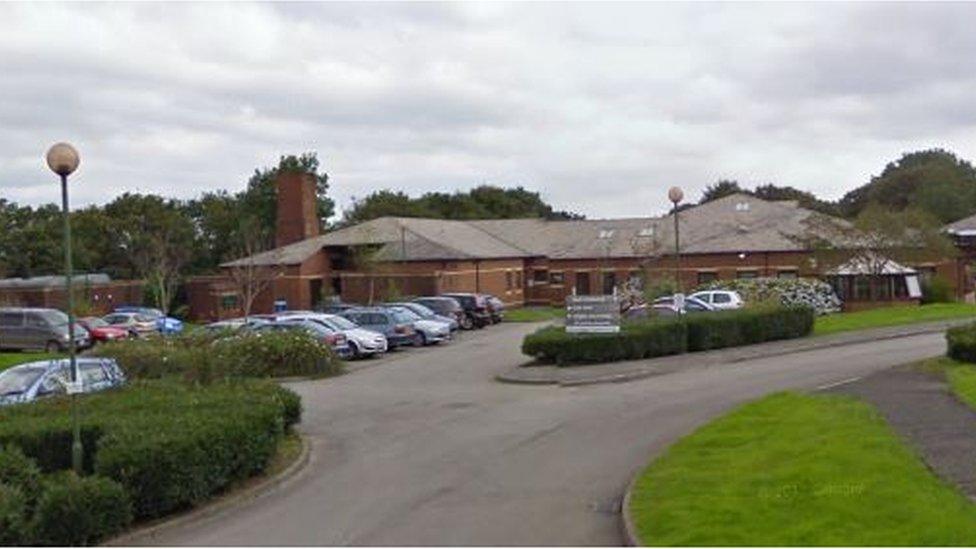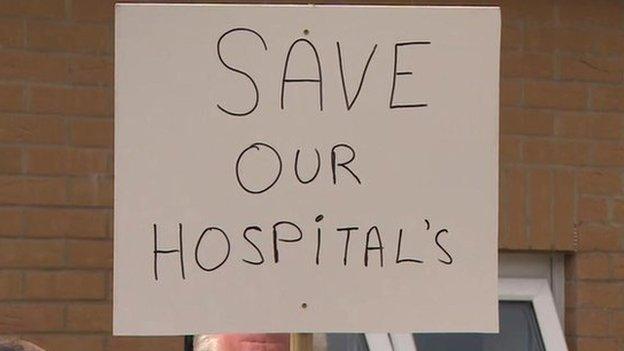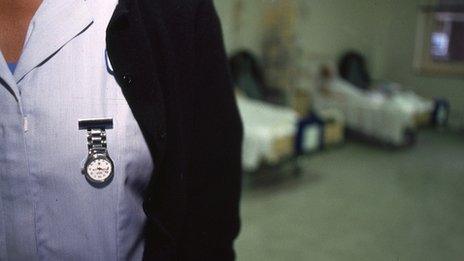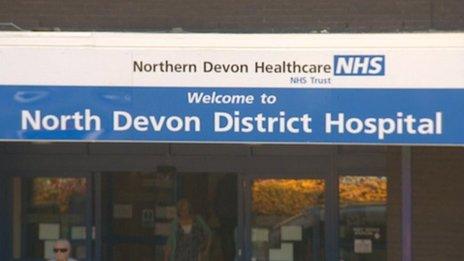North Devon hospital bed closures could be 'dangerous'
- Published

Holsworthy Community Hospital is one of three that could see community beds cut
More than 20 Devon GPs have written to a health trust warning plans to close hospital beds "could prove dangerous".
The letter said the proposals to close more than 30 community beds in north Devon caused "grave concern over patient safety".
It called on the Northern Devon Healthcare NHS Trust to rethink a continuing consultation on the plans.
The trust said it hoped to reassure GPs the proposals were safe, at a meeting that has already been organised.
It said the commissioners, New Devon CCG, agreed in May that the number of community beds in northern Devon would be reduced from 74 to 40, as £5m needs to be saved from the trust's community services budget across North and East Devon in this financial year.
'Untried and untested'
The GPs' letter said: "We, the undersigned GPs, would like to register our grave concerns over patient safety regarding the forthcoming plans of Northern Devon Healthcare NHS Trust (NDHT) to close community beds."
It went on: "We are concerned that the untried, untested closures of so many community hospital beds in this area could prove dangerous for a significant population of patients who might need to rely on community beds."
The GPs described the consultation process over the possible bed closures, which concludes at the end of September, as a "hasty cost improvement process".
They raised particular concerns over the safety of the proposals "in the absence of concrete plans for bolstering and investing in safe staffing levels of the existing very stretched community nursing service".
A spokesman for NDHT said it had responded to the letter "encouraging the GPs in northern Devon to attend the second meeting we have organised for them on 29 September to discuss the consultation".
He said the trust wanted "to reassure them that the model of care which replaces the beds is safe".
The spokesman said the trust disputed that the model of care was untried and untested, saying: "There is a growing body of local evidence which demonstrates that the home-facing model of care (without beds) provides better patient care and better system resilience during peaks in demand."
- Published16 July 2015

- Published16 March 2015

- Published11 September 2014
